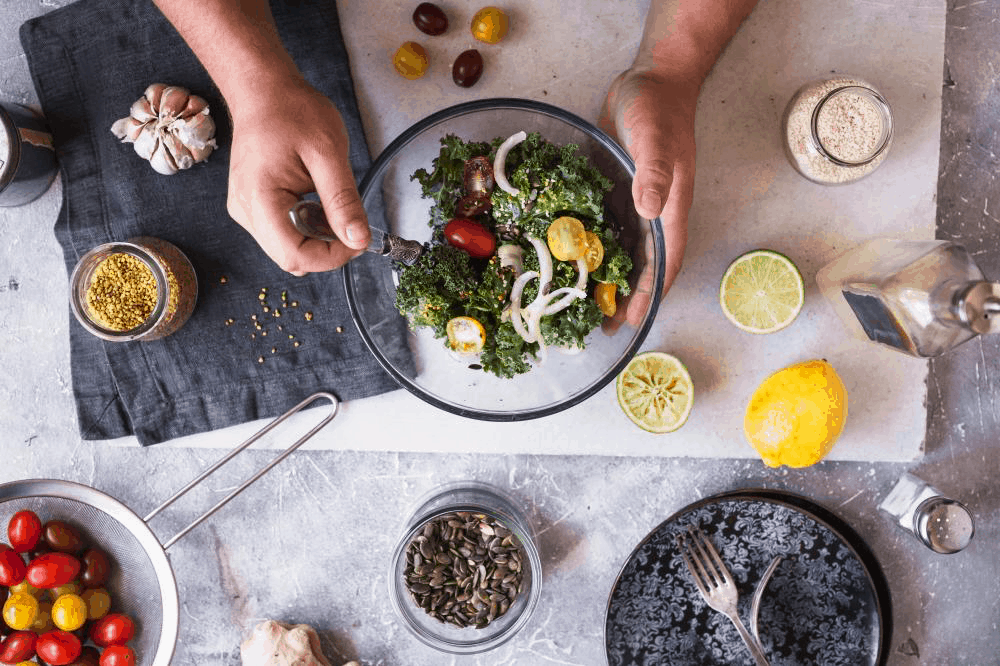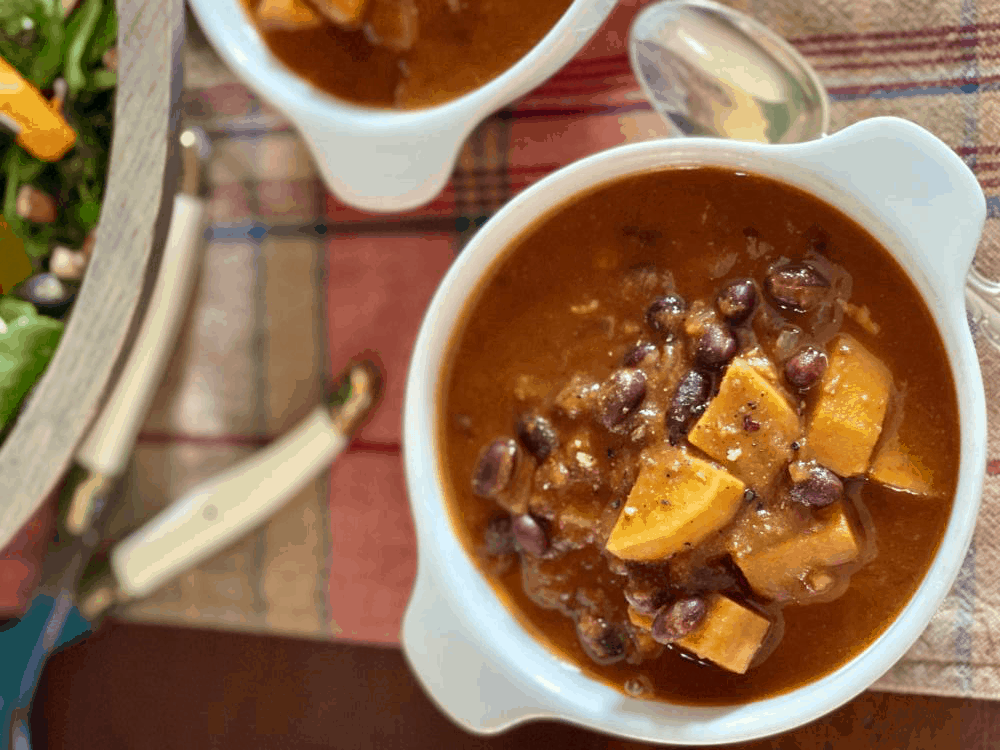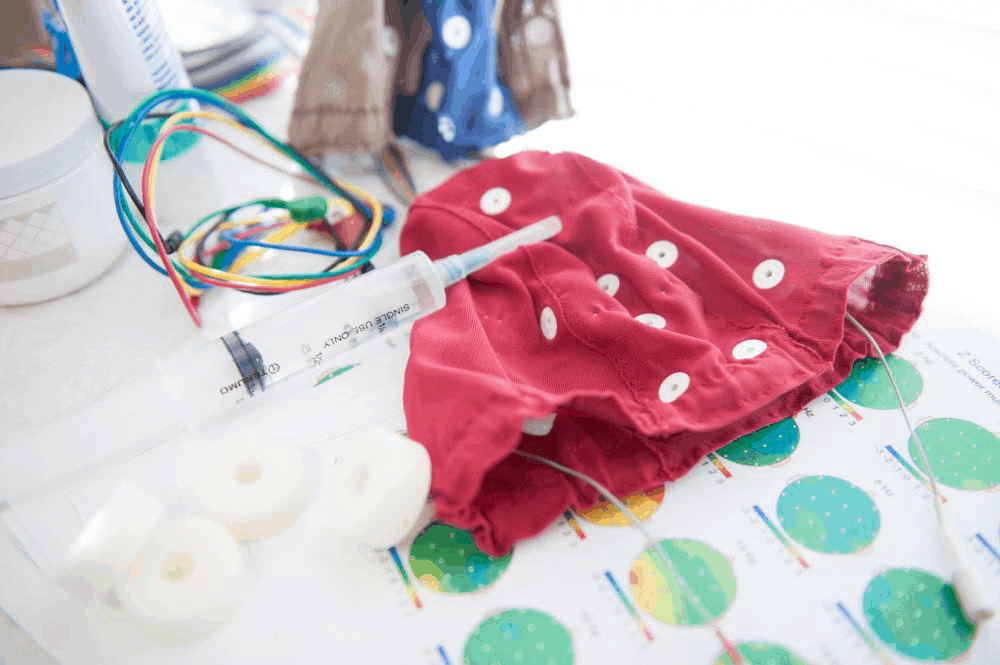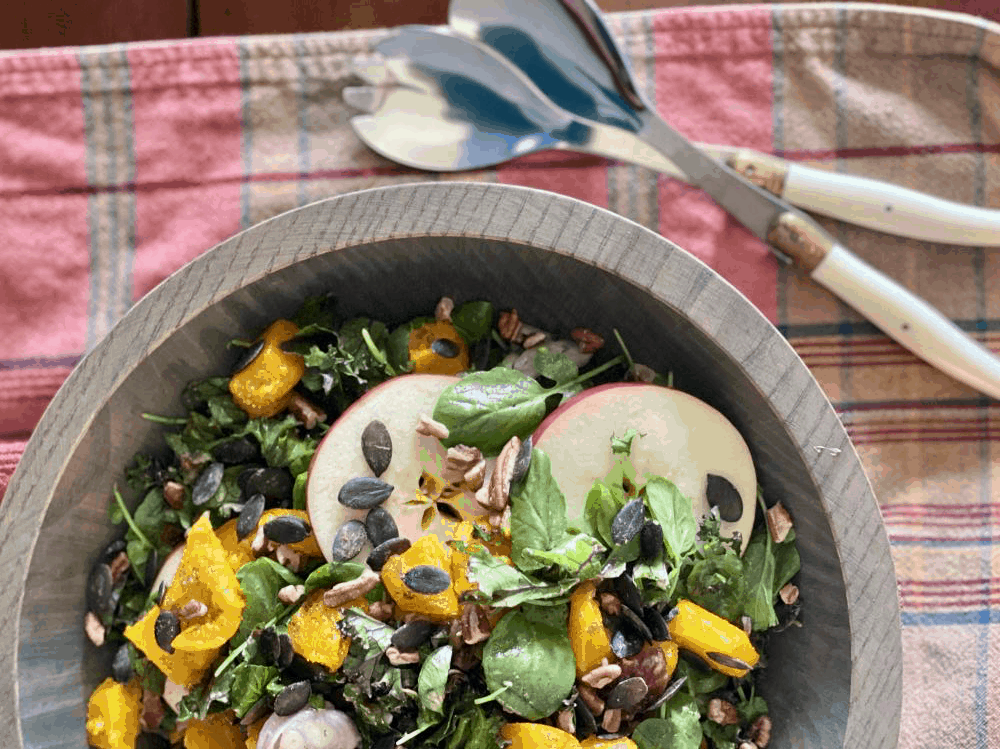
Meals to Improve Mental Health
Did you know what you eat can affect your mental health?
Most Americans are in the habit of consuming fried food, prepackaged meals, and sugary beverages. Unfortunately, these foods are highly processed, pro-inflammatory, and put you at a higher risk for developing mental health disorders such as anxiety and depression.
A Mediterranean Diet Can Improve your Mental Health
Changing to a Mediterranean diet can offer protection against developing mental disorders. A diet packed with anti-inflammatory foods has been shown to aid in the treatment of mental illness and even provides significant protection against depression.
6 Diet Tips for Better Mental Health
Don’t Skimp on Fruits & Veggies!
Provide yourself protection against depression with magnesium and folic acid from a variety of vegetables and fruit in your diet.
Eat Fish Twice a Week!
Lower your risk of depression with good omega-3 intake, which is shown to be especially beneficial from eating fish twice a week.
Focus on your Fiber!
Studies show when gut health is altered, mental health can become impaired. Keep the gut and brain healthy with a high fiber diet of whole grains, legumes, nuts, and seeds.
B12 is Essential!
Enjoy sardines, nutritional yeast, salmon, and eggs for good sources of vitamin B12 to offer protection against depression. Vegetarians, vegans, and pregnant or breastfeeding women should closely monitor B12 intake.
Be Pre and Probiotic Rich!
Eat prebiotic and probiotic rich foods to boost mood, reduce anxiety and improve depressive symptoms. Get prebiotic rich by cooking with onions, leeks, and garlic, by eating asparagus, oats, bananas, and apples, and adding flaxseeds, cocoa, seaweed, and chicory root to your meals. For probiotic rich foods, regularly add yogurt, kefir, kimchi, and sauerkraut to your diet.
Don’t Go at It Alone!
Consider seeking dietary counsel and support to maintain a healthy diet. Individual dietary counseling has strong evidence to support improvements in mental health and reduced depression.
2 Healthy & Crowd-Pleasing Recipes
The two recipes below are great to easily feed a crowd! Try these out when sharing your meal with others to improve your crew’s mood throughout the fall and winter months!
Good news! Pumpkin and butternut squash are antidepressant foods! Not that we need another excuse to enjoy our favorite fall flavors. Incorporate pumpkin and butternut squash as part of a therapeutic plan to prevent and improve recovery from depression.
Simply October Salad – Family Style
Salad Ingredients:
1 Georgia roaster squash/pumpkin or small pie pumpkin
1 tsp cinnamon
2 bunches red kale, stems removed and leaves chopped
2 shallots, peeled and finely sliced
2 apples, sliced
1/2 cup chopped pecans
1/2 cup pumpkin seeds
Dressing Ingredients:
1/2 cup olive oil
1/4 cup apple cider vinegar
2 garlic cloves, peeled
3 dates, pitted
1 Tbs lemon juice
Sea salt and pepper to taste
Directions:
Preheat oven to 400 degrees. Line a large baking sheet with parchment paper. Remove pumpkin stem. Slice pumpkin in half and scoop out and discard seeds. Place each half on lined baking sheet. Sprinkle halves with cinnamon and bake in oven for 30-40 mins until tender.
While pumpkin bakes, prepare salad so kale may marinate in dressing. Make dressing by adding all dressing ingredients to blender. Blend until combined with small chunks of dates remaining.
Place kale and shallot in a large bowl. Toss with dressing.
When pumpkin is tender, remove from oven and let slightly cool. Slice off peeling and chop into cubes. Toss cubes onto marinated kale. Add in apples, pecans, and pumpkin seeds. Lightly toss and serve.
Winter Squash Chili
 Ingredients:
Ingredients:
2 Tbs olive oil
1 butternut squash, peeled and chopped into 1 inch cubes
1 onion, peeled and chopped
2 garlic cloves, minced
2 Tbs chili powder
1 Tbs cumin
1 tsp thyme
2 cans black beans, drained
4 cups (32 oz) vegetable broth
1 24-29 oz can of tomato sauce or jar of marinara
1 can pumpkin
Sea salt and black pepper to taste
1 bunch cilantro, stems removed and chopped
Directions:
Drizzle olive oil in large pot. Place butternut squash, onion, and garlic in pot and stir. Cover pot with lid. Heat over medium heat until soft, about 10 minutes, stirring occasionally. Remove lid and stir in chili powder, cumin, and thyme. Add beans, broth, sauce, and pumpkin and bring to a low boil. Reduce heat to low and cook for 30-45 minutes. Season with salt and pepper. Serve topped with a large handful of cilantro.
Methylation is an essential process in your body that can decline with age or through alcohol consumption.
SAM-e with Recharge Factor is a supplement formulated by Dr. Haase to revamp this process by giving your body the materials needed to perform the complex process of methylation.
Supporting healthy methylation can have positive outcomes for mood and liver function.
You can purchase Creating Health’s SAM-e here.
Neurofeedback Available at MaxWell Clinic™

Neurofeedback is effective not only as a general mental performance enhancer, but also as a treatment for a variety of brain related health challenges.
When you come in for a neurofeedback appointment, we will sit you down in a comfy chair and put a special cap on your head that reads the electrical currents in your brain. We can see how well your brain is behaving by comparing it to a database made from exceptionally powerful, healthy, and stable brains. Whenever your brain behaves correctly, we reward it, usually by brightening the screen and raising the audio in a video you’re watching.
Call the clinic at (615) 370-0091 to make an appointment.
Please speak with your doctor or medical provider before taking any supplement.
Bruce-Keller, A. J., Salbaum, J. M., & Berthoud, H. R. (2018). Harnessing Gut Microbes for Mental Health: Getting From Here to There. Biological psychiatry, 83(3), 214–223. https://doi.org/10.1016/j.biopsych.2017.08.014
Chae, W., Ju, Y. J., Shin, J., Jang, S. I., & Park, E. C. (2018). Association between eating behaviour and diet quality: eating alone vs. eating with others. Nutrition journal, 17(1), 117. https://doi.org/10.1186/s12937-018-0424-0
Cryan, J. F., & Dinan, T. G. (2012). Mind-altering microorganisms: the impact of the gut microbiota on brain and behaviour. Nature reviews. Neuroscience, 13(10), 701–712. https://doi.org/10.1038/nrn3346
Hammons, A. J., & Fiese, B. H. (2011). Is frequency of shared family meals related to the nutritional health of children and adolescents?. Pediatrics, 127(6), e1565–e1574. https://doi.org/10.1542/peds.2010-1440
Hu, D., Cheng, L., & Jiang, W. (2019). Sugar-sweetened beverages consumption and the risk of depression: A meta-analysis of observational studies. Journal of affective disorders, 245, 348–355. https://doi.org/10.1016/j.jad.2018.11.015
Jacka, F. N., O’Neil, A., Opie, R., Itsiopoulos, C., Cotton, S., Mohebbi, M., Castle, D., Dash, S., Mihalopoulos, C., Chatterton, M. L., Brazionis, L., Dean, O. M., Hodge, A. M., & Berk, M. (2017). A randomised controlled trial of dietary improvement for adults with major depression (the ‘SMILES’ trial). BMC medicine, 15(1), 23. https://doi.org/10.1186/s12916-017-0791-y
LaChance, L. R., & Ramsey, D. (2018). Antidepressant foods: An evidence-based nutrient profiling system for depression. World journal of psychiatry, 8(3), 97–104. https://doi.org/10.5498/wjp.v8.i3.97
Ljungberg, T., Bondza, E., & Lethin, C. (2020). Evidence of the Importance of Dietary Habits Regarding Depressive Symptoms and Depression. International journal of environmental research and public health, 17(5), 1616. https://doi.org/10.3390/ijerph17051616
Opie, R. S., O’Neil, A., Jacka, F. N., Pizzinga, J., & Itsiopoulos, C. (2018). A modified Mediterranean dietary intervention for adults with major depression: Dietary protocol and feasibility data from the SMILES trial. Nutritional neuroscience, 21(7), 487–501. https://doi.org/10.1080/1028415X.2017.1312841
Owen, L., & Corfe, B. (2017). The role of diet and nutrition on mental health and wellbeing. The Proceedings of the Nutrition Society, 76(4), 425–426. https://doi.org/10.1017/S0029665117001057
Peirce, J. M., & Alviña, K. (2019). The role of inflammation and the gut microbiome in depression and anxiety. Journal of neuroscience research, 97(10), 1223–1241. https://doi.org/10.1002/jnr.24476
Quirk, S. E., Williams, L. J., O’Neil, A., Pasco, J. A., Jacka, F. N., Housden, S., Berk, M., & Brennan, S. L. (2013). The association between diet quality, dietary patterns and depression in adults: a systematic review. BMC psychiatry, 13, 175. https://doi.org/10.1186/1471-244X-13-175
Salari-Moghaddam, A., Keshteli, A. H., Afshar, H., Esmaillzadeh, A., & Adibi, P. (2019). Association between dietary inflammatory index and psychological profile in adults. Clinical nutrition (Edinburgh, Scotland), 38(5), 2360–2368. https://doi.org/10.1016/j.clnu.2018.10.015
Yiengprugsawan, V., Banwell, C., Takeda, W., Dixon, J., Seubsman, S. A., & Sleigh, A. C. (2015). Health, happiness and eating together: what can a large Thai cohort study tell us?. Global journal of health science, 7(4), 270–277. https://doi.org/10.5539/gjhs.v7n4p270
Feeding MaxWell nutrition emails are produced for informational purposes only and brought to you by MaxWell Clinic, LLC. The information is provided by a Registered Dietitian Nutritionist that has been trained in providing dietary advice backed by nutritional science and research. The nutrition information is not to be construed as medical advice or medical nutrition therapy. The information is not to be used as individualized nutrition counseling or used to diagnose, cure, treat, or prevent any medical problems. The content of these emails should not be used as a substitute for medical treatment from your medical provider. Any information, examples, recipes, foods, or stories presented do not constitute a warranty, guarantee, or prediction regarding the outcome of the individual using the material. The reader is responsible for working with a qualified professional before beginning any new dietary program or plan. The writers and publishers of this nutrition information are not responsible for any adverse reactions, effect, or consequences resulting from the use of provided information, recipes, foods, or suggestions.

